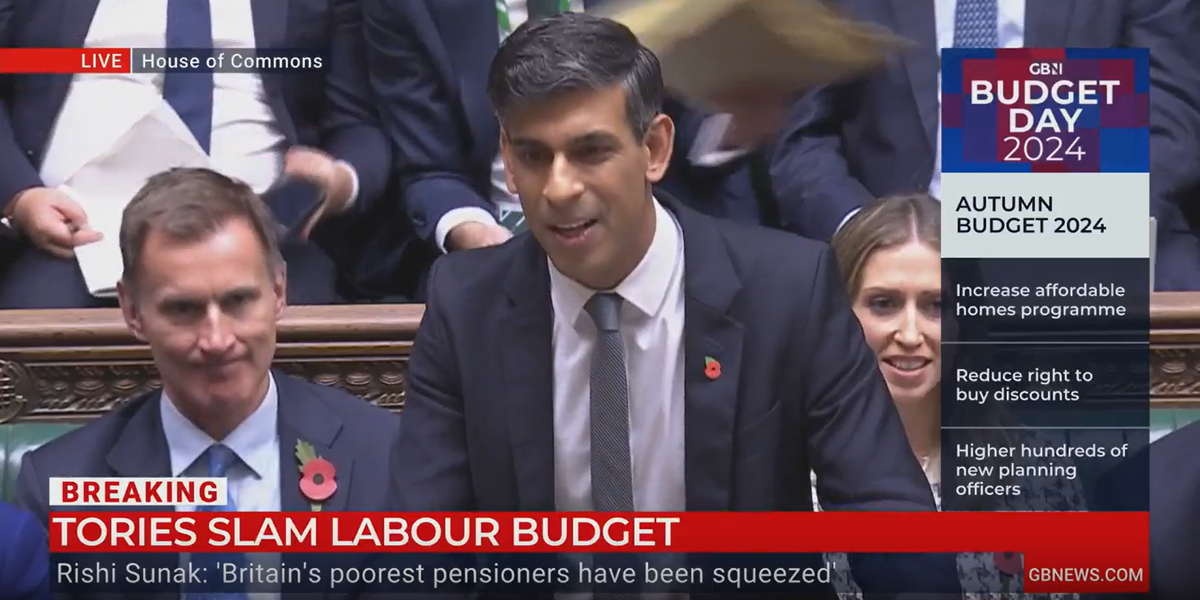Rishi Sunak’s Fiery Clash with Chancellor Rachel Reeves Over Tax Rises
In a dramatic session in the House of Commons, Rishi Sunak, the former Prime Minister and current Leader of the Opposition, delivered a passionate critique of Chancellor Rachel Reeves following her announcement of a staggering £40 billion in tax increases as part of Labour’s first budget in 14 years. This moment marked a significant political confrontation, with Sunak’s remarks underscoring the deep divisions between the two parties regarding fiscal policy and economic management.
The Context of the Budget Announcement
Chancellor Rachel Reeves unveiled a budget that has been described as the largest tax-raising initiative in cash terms since 1970. The announcement has significant implications for the UK economy, particularly as it comes at a time when many households are already grappling with the rising cost of living. The £40 billion tax hike includes various measures such as increased stamp duty, higher Employers’ National Insurance Contributions, and adjustments to Capital Gains Tax and inheritance tax rules. Notably, the National Health Service (NHS) is set to benefit from a substantial £22.6 billion increase in day-to-day health spending, a move that has been welcomed by many but criticized by others for its funding sources.
Sunak’s Counterattack: A Defense of Conservative Legacy
In his response, Sunak took direct aim at Reeves’ assertion that the previous Conservative administration had left a £22 billion black hole in the nation’s finances. He accused the Chancellor of "fiddling the figures" and claimed that her government had raised taxes to record levels while breaking promises made to the electorate. Sunak’s rhetoric was sharp as he stated, "It is the working people of this country that are going to pay the price," emphasizing the burden that these tax increases would place on ordinary citizens.
Sunak further asserted that the claims made by Reeves and Prime Minister Keir Starmer regarding the state of the economy were misleading and politically motivated. He pointed out that the Office for Budget Responsibility (OBR) had not supported Reeves’ claims about the supposed fiscal black hole, stating, "It actually appears nowhere in their report." This assertion aimed to highlight what Sunak described as the politicization of the OBR, an independent body that should remain above party politics.
The Political Landscape: Labour’s Bold Move
Reeves’ budget marks a significant shift in the UK’s political landscape, as Labour seeks to redefine its economic strategy after years in opposition. The scale of the tax increases has drawn comparisons to previous fiscal measures, notably surpassing Norman Lamont’s £38.5 billion tax raid in 1993. This bold move reflects Labour’s commitment to addressing pressing economic challenges, particularly in funding public services like the NHS, which has been under immense pressure in recent years.
However, the budget’s reception has been mixed. While some applaud the increased funding for health services, others express concern over the long-term implications of such substantial tax hikes. Critics argue that the burden of these taxes could stifle economic growth and disproportionately affect lower and middle-income families.
Conclusion: A Defining Moment in UK Politics
The exchange between Rishi Sunak and Rachel Reeves in the House of Commons encapsulates the ongoing battle for economic credibility between the Conservative and Labour parties. As Sunak prepares to step down as Leader of the Opposition, his fiery defense of Conservative fiscal policies serves as a reminder of the contentious nature of UK politics, particularly in the realm of economic management.
With Labour’s ambitious budget now on the table, the coming weeks and months will be crucial in determining how the public responds to these tax increases and whether they will bolster or undermine the party’s standing in the eyes of voters. As the political landscape continues to evolve, both parties will need to navigate the complexities of public sentiment and economic realities in their quest for governance.
